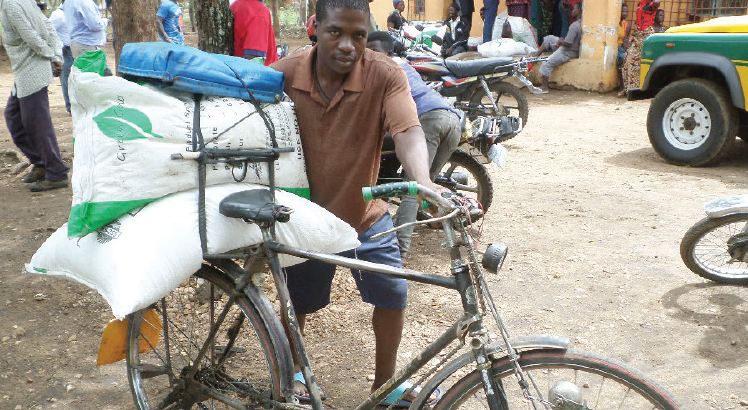Experts urge early fertiliser procurement
A gricultural experts are urging the government to consider early procurement of fertiliser and other inputs before the prices get even higher in coming months as the farming season nears.
Last week, the government devalued the Malawi Kwacha by 25 percent thereby impacting prices of goods and services instantly.
In an interview following this week’s panel discussion organised by Lilongwe University of Agriculture and Natural Resources (Luanar) on the impact of emerging issues affecting sustainable food systems in Malawi International Food Policy Research Institute (Ifpri) research fellow Jan Duchoslav said amid the crisis, Malawi has several options.

He said: “Early procurement of fertiliser would be much better than late procurement certainly, because prices are rising and will keep rising. The challenge is that even now forex is in short supply and importing large quantities may not be feasible.
“The crisis is something which will be hard but there are options for Malawi. The most important one is to ensure government policies are as much flexible as possible”.
Duchoslav said as input prices rise, policies will be tested on whether the government can consider moving from subsidies to social protection programmes or investment in soil health and improved technologies.
On the domestic market, retail prices for fertiliser have gone up by about 90 percent from K22 042 per 50 kilogramme bag in August 2020.
Spot checks conducted in some agro-dealer shops showed that a 50kg bag of Urea and CAN were fetching K49 000 and K37 700, respectively.
On the other hand, Super D was selling at K62 700 while Compound D was at K52 700.
Luanar vice-chancellor professor Emmanuel Kaunda said currently supply chains in Russia and Ukraine have been affected coupled with global sanctions hence Malawi as one of the global trade beneficiaries remains affected.
He said while the Ukraine crisis seems far from Malawi, the impacts are there for everyone to see hence as researchers, they are working on finding home-grown solutions.
He said the universities must do research that find solutions of unforeseeable challenges and offer well packaged solutions to influence policy change in the country.
Fertiliser Association of Malawi data shows that in the past five years, the annual fertiliser market in Malawi is between 350 000 to 370 000 metric tonnes (MT).
In the 2020/21 growing season, 345 710MT of fertilisers were sold under the Affordable Inputs Programme (AIP).
Principal economist in the department of Planning in the Ministry of Agriculture Sarah Tione said while resources are inadequate, the Ministry takes cognisant of the need to re-orient resources to pressing needs.
She said the basic need is to respond to the crisis by way of ensuring people are food secure at all times.
She said: “Previously, we used to import more maize to respond to food crisis, but that policy was changed to say let’s import fertilisers to produce our own food and the policy has been working over the years. There are challenges but it is important to sustain the objective of us having sufficient food”.
This year’s first round crop estimates show a 14 percent drop from last year’s. This year the country is expecting to harvest over 3.8 million MT, against the annual food need of about 2.9 million MT for consumption.
Last season maize output was estimated at 4 581 524 MT.
In the 2020/21 agriculture season final crop estimate, maize production was estimated at 4 581 524 MT, while for the 2019/20, maize production was estimated at 3 785 712 MT.





